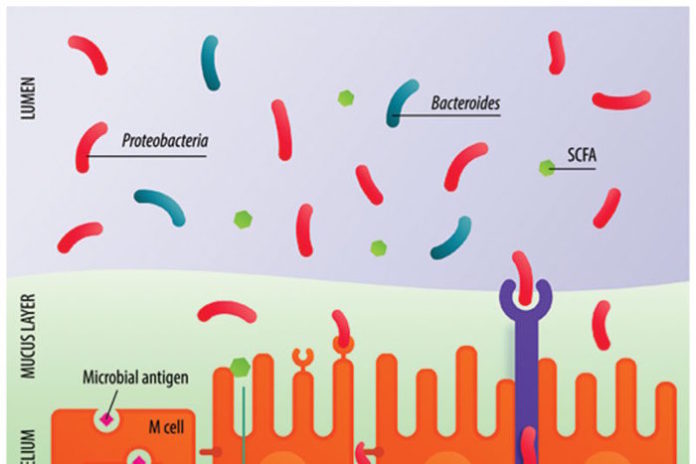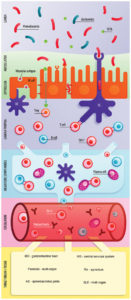IMID is a term used to describe a group of chronic, highly disabling diseases that affect different organ systems. Though a cornerstone commonality between IMID is the idiopathic nature of disease, a considerable portion of their pathobiology overlaps including epidemiological cooccurrence, genetic susceptibility loci and environmental risk factors. At present, it is clear that persons with an IMID are at an increased risk for developing comorbidities, including additional IMID. Advancements in sequencing technologies and a parallel explosion of 16S rDNA and metagenomics community profiling studies have allowed for the characterization of microbiomes throughout the human body including the gut, in a myriad of human diseases and in health. The main challenge now is to determine if alterations of gut flora are common between IMID or, if particular changes in the gut community are in fact specific to a single disease. Herein, we review and discuss the relationships between the gut microbiota and IMID.
Authors: Jessica D. Forbes1,2, Gary Van Domselaar1,2 and Charles N. Bernstein3*
- Department of Medical Microbiology and Infectious Diseases, University of Manitoba, Winnipeg, MB, Canada
- National Microbiology Laboratory, Public Health Agency of Canada, Winnipeg, MB, Canada
- Department of Internal Medicine and the IBD Clinical and Research Centre, University of Manitoba, Winnipeg, MB, Canada




















































